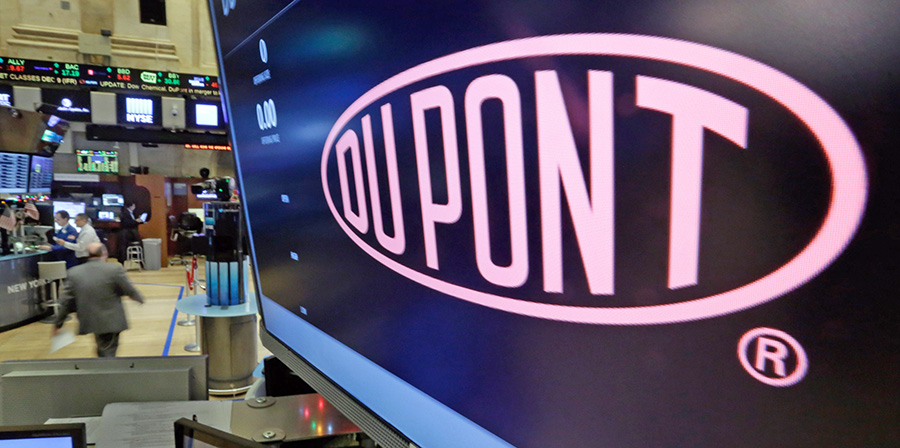 Merger talks are taking place between DuPont and Dow Chemical Co that would create a titan in the chemical industry, with a market value of over $130 billion.
Merger talks are taking place between DuPont and Dow Chemical Co that would create a titan in the chemical industry, with a market value of over $130 billion.
That helped to lift shares of Dow to a new record in trading on Wednesday and put DuPont stock on track to record its largest one-day gain in over six years.
A deal could help to ease pressure being applied to both companies by shareholders, strengthen their positions amidst the weak demand for chemical in the farm industry, but would attract scrutiny from regulators in their major markets such as China.
DuPont a component of the Dow Jones Industrial average soared more than 13.6% in what might turn out to be its best day since March of 2009.
On Tuesday, The Wall Street Journal reported that both companies were involved in advance talks for a merger that would create a behemoth in the chemicals company. It would then split in three with an individual company focused on material, specialty chemicals and agriculture.
This deal as described by sources close to the matter is merger of equals that would put a value of stock at DuPont at $82 and Dow’s at $68, said analysts.
DuPont and Dow have struggled due to falling demand in farm chemicals, even as the two’s plastics units have been reporting much higher margins because of low prices of natural gas.
The combination of the two would produce an entity that would then break into different pieces said those in the know.
The newly combined company could be split into a material sciences business such as used in car engines or packaging, specialty products along with agrochemicals.
One analyst on Wall Street said that the merger could result in over $3 billion in cost synergies.
This deal would like face tough scrutiny from regulators in a number of different countries.
The first reports of such a deal surfaced the week prior to the expiration of an agreement between Daniel Loeb an activist investor in Dow Chemicals and Dow. Loeb had promised to not publicly criticize the company for one year.
DuPont had faced much pressure from its own activist investor Nelson Peltz, who wanted the company separated into biosciences, nutrition and agriculture.
